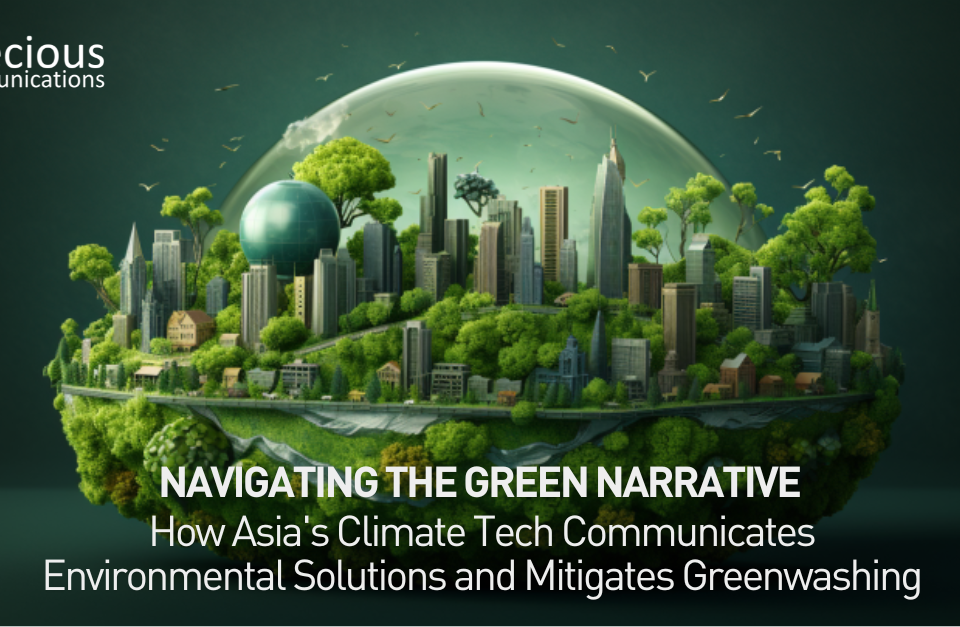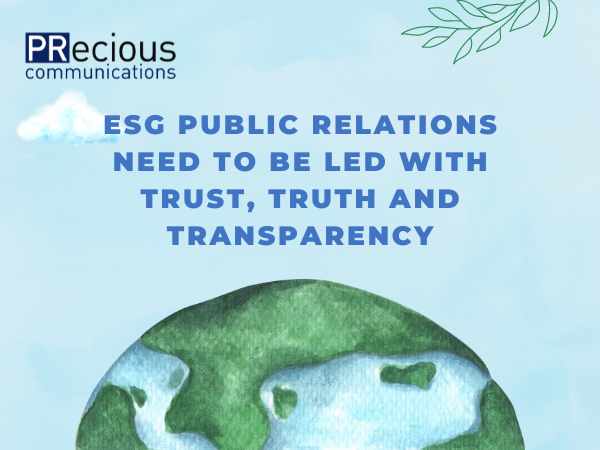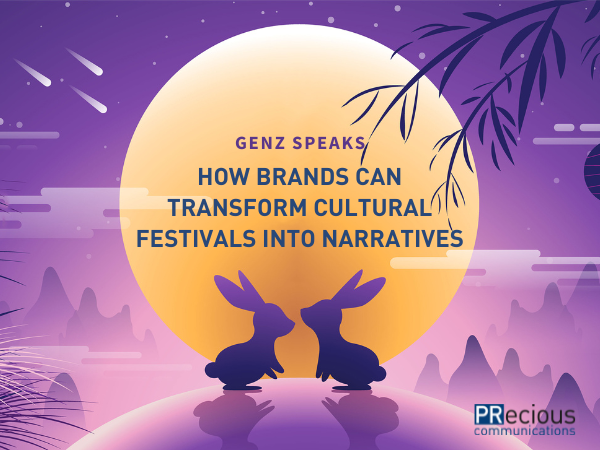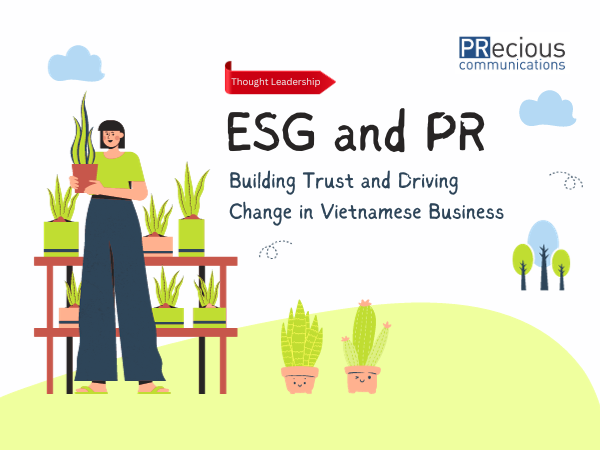Lessons We Can Learn From Chinese Brands Around Global Expansion

Devising Brand Building Strategies for Digital Media
October 5, 2020
PRCA SEA Mental Health Week
October 30, 2020
One key consideration Chinese brands can consider before expanding globally is the need to consider professional communication skills.
The acquisition of Musical.ly (video app) may have sowed the “seed of future troubles” for Zhang’s company, which found itself caught in a geopolitical situation – but the rise of TikTok definitely serves as a good case study for Chinese companies looking to venture into the Western market, especially the USA.
Working with clients across various verticals, experts from PRecious Communications share their thoughts on lessons we can learn from Chinese brands going for global expansion.
Following a mixed best-of approach

Quite a few Chinese brands learnt the hard way that especially for Southeast Asia, every market is unique in terms of affluence, mobile or internet usage patterns and culture. Quite a few fast-growth Chinese startups burnt their fingers in recent years, trying to approach this region as one homogeneous market instead of accepting it as being made of different languages, cultures, regulations and economic maturity levels.
However, every segment and vertical has a different market acquisition strategy – e.g. Whitegoods or consumer electronics manufacturers followed that path set by Japanese or Korean brands decades ago by first competing on price over quality and then slowly but steadily increasing their value offering led by innovative features. We shall expect a similar approach in other markets like, e.g. electric vehicles.
In the eCommerce market, the acquisition seems to be a more successful approach after having seen other investors and players from different countries, having fought it out without clear market dominance.
For mobile apps on the other side, a proven model was to first reach out to existing users who are familiar with certain apps from their time back in China, then expanding among the Chinese speaking community before growing beyond that.
In a nutshell, Chinese brands going for expansion can follow a mixed best-of approach from acquisition to price competition to leveraging existing fan bases.
Contributed by Lars Voedisch, Founder and Managing Director
China’s impressive adaptability and resilience to bounce back

If we look at the offline world, it is easier to discern cultural, linguistic and other differences across countries and cultures. The way of doing things can vary significantly from one place to another. Contrary to this, user behaviours tend to be a lot more homogeneous online – digitalisation truly is a great equaliser, giving rise to more consistent user experiences and actions. I feel that digitalisation has played a crucial role in furthering this new wave of China’s globalisation.
A slew of Chinese tech brands is leading the way including Alibaba along with Ant Financial – which looks to set a new IPO record, BYTEDANCE along with TikTok, Huawei, PUBG, Tencent along with its WeChat platform, and Xiaomi, to name a few. The fact that some of these companies can develop global brand names and build brand equity shows that there is more trust among global stakeholders for “made in China brands”. Each of these brands also has its value proposition for its group of consumers – ultimately, global success could come down to connecting with and engaging consumers through digital-first platforms.
Winning the trust of consumers and a more favourable global perception will help Chinese brands build global resilience, carrying them a long way in the face of trade restrictions and nationalistic bans. After all, if one goes by the Chinese zodiac, 2020 is the year of the rat, an animal which is known for its keen sense of curiosity, as well as how quickly it can adapt itself to new surroundings. Going by data from the Economist Intelligence Unit, China’s continuing bounce back from the pandemic is impressive, as one of the world’s only economies showing signs of positive growth, a true testament of its adaptability and resilience, much like the rat.
Contributed by Prayaank Gupta, Head of Growth & Innovation
Success is dominated by first movers

China has one of the most robust and diverse social media landscape in Asia. Over 800 million Chinese internet users are thriving on the online space, sharing thoughts, opinions and recommendations. Most recently, the concept of social commerce has once again reinforced China’s prowess in the e-commerce arena, with predictions on the growth of $242.41 billion, accounting to 11.6% of e-commerce sales in the country.
Influencer Marketing forms a big part of Social Commerce – a $9 billion industry. Influencers are the key people influencing consumers’ purchase decisions. In China, they are key to online sales conversions. In the current economic climate, where brands are thinking of doing cross-border sales, harnessing the power of social selling with key influencers is important. Selecting the type of influencers possessing the entrepreneurial quotient to embark on this journey together would be a good starting point.
Social selling is a new place for the SEA and even global markets. In this industry, success is dominated by first movers and brand owners who are continually innovating. Content on social media can only go that far with brand awareness. To break through, brands and platforms will have to work hand in hand to connect with consumers in a new purposeful way that goes beyond brand awareness. As we all believe, the new normal calls for a new way of engagement and social selling is this new way where brands will have to explore to pivot and embark on their next phase of economic growth.
Contributed by Robin Chang, Regional Head, Client Advisory
Innovation and technology as key focus areas

China’s business prowess today is built on its continued economic growth over the past decade or so. Looking at their global brands today, a lot of that growth was due to a key focus on innovation and technology. Many of these global business leaders share stories of humble beginnings and hard work, striving to provide never-before-seen solutions and services to the global market.
These are lessons that all businesses can learn from, Singapore or otherwise. A focus on providing useful, relevant and potential world-changing products and services is what gives a business that competitive edge. Of course, being able to communicate that relevance and edge to customers and other businesses is just as important to the products themselves.
Contributed by Clarence Lim, Client Services Director, Inc
Building an ecosystem free from influences from the West

Fears of a ‘digital iron curtain’ descending continue to cast a pall of gloom when countries should ideally be working together during this time. Last year’s conflict around Huawei was just the first shots fired in a new Cold War, and the issue around ByteDance is just the latest shot.
This has led to a sort of unification and motivation in China to build. And grow an ecosystem that is independent of the need for adoption or influences from the West. In this scenario, it’s only natural that certain countries in our region would benefit, including Singapore. Singapore’s stable political structure, pro-business outlook, robust legal framework, world-class corporate governance practices, and a progressive regulatory environment means that Singapore will continue to be more than a safe harbour for businesses in the broader region looking to expand.
The latest Cold War is just getting hotter while Singapore might just be ‘chilling out’ with some nifty global investments being made in the Lion City. From a PR point of view, the ‘news’ space is going to become a lot more crowded, and technology brands in Singapore need to focus on the ‘X Factor’ that makes them relevant enough to be covered by the media.
Contributed by Rajiv Menon, Client Services Director, Edge
Inspired by this post? If you are a startup or a corporate and are looking to build trusted relationships with your key audiences, get in touch with us to expand your brand awareness. Let’s push creative boundaries, together.







